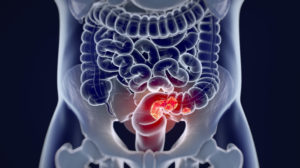Psychological trauma is a response to an event that an individual finds extremely stressful. Examples include a violent personal assault, being in a war zone, or an accident. Trauma can cause a wide range of physical and emotional symptoms, including post-traumatic stress disorder (PTSD) and depression with varying degrees of impact, from subtle to outright destructive.
Fifty to 85% of all U.S. adults will experience at least one traumatic event during their lifetimes, but most do not develop PTSD. People who experience PTSD may have persistent, frightening thoughts and memories of the event(s), feel numb or detached, experience sleep problems, or be easily startled. In severe forms, PTSD can significantly impair a person’s ability to function at home, work, and socially.
Besides the impact on mental well-being and behavior in the exposed individuals, it has been suggested that psychological trauma can affect the biology of the individuals and even have biological and behavioral consequences on the offspring of exposed individuals.
One study looked closer at the link between PTSD and epigenetics – to establish whether trauma-induced epigenetic modifications can be passed from traumatized individuals to subsequent generations of offspring.
Read the original publication of this study here: [The Effects of Trauma, with or without PTSD, on the Transgenerational DNA Methylation Alterations in Human Offsprings]
Learn more about the relevant human studies on trauma and its effect on the biology of individuals and their offspring.

The Effects of Trauma, with or without PTSD, on the Transgenerational DNA Methylation Alterations in Human Offsprings
The team reviewed previous literature regarding psychological trauma. The studies included transgenerational effects and effects on physical health, for example:
- Perroud et al. examined the impact of the Tutsi genocide on the children of pregnant women while genocide was ongoing in Rwanda.
- Yehuda and Daskalakis et al. examined transgenerational methylation changes of Holocaust survivors on FKBP5, a moderator of glucocorticoid activity.
- Mulligan et al. (2012) tested if prenatal maternal stress in the Congo population resulted in glucocorticoid receptor NR3C1 methylation changes in the offspring (that may lead to increased risk of adult-onset disease).
- Radtke al (2011) examined the methylation of 10 CpG sites in the promoter region of the NR3C1 gene in mothers who suffered pre-pregnancy or during pregnancy exposure to intimate partner violence (IPV) and their children at the age of 10–19.
The authors noted many examples of the biological component of PTSD risk, and this PTSD risk can be passed from generation to generation.
Dealing with psychological trauma after the event is crucial for the healing process and reduces any risk of PTSD and any possible effects on offspring.
Takeaways:
- Researchers found much evidence of the ongoing effects of psychological trauma exposure passed on to offspring through the epigenetic inheritance mechanism of DNA methylation.
- Trauma has the capacity to change the expression of genes and the metabolome.
- PTSD risk can be passed from generation to generation.
- The results have opened up further avenues for future research directions, ideally more extensive studies with a control group.





